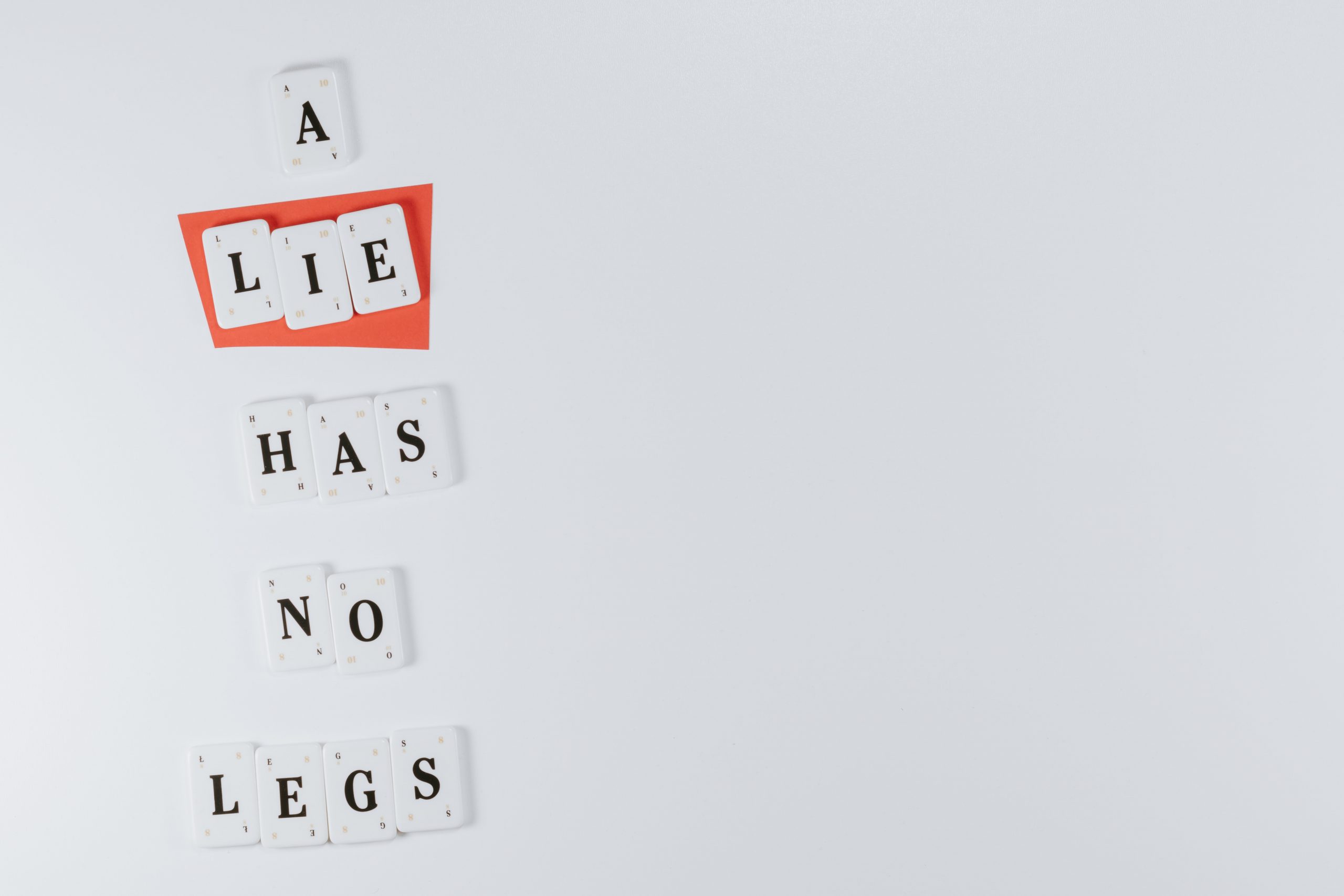Dishonesty in the workplace varies from lying, misuse of company time or expenses, stealing, fraud, claiming sick pay when not sick, taking leave without permission or giving untruthful information when applying for a job to name but a few. Dishonesty tarnishes relationships, compromises finances, breaks loyalty and destroys reputations, so why is it still rife in business (and politics)?
The more lies we tell, the easier it gets according to a study conducted by researchers from University College London and Duke University * who aimed to discover precisely what happens to our brains when we tell a lie. To test this, participants took part in a task where they could lie to receive money. During the first phase of the experiment, heightened activity was found in areas of the brain, such as the amygdala, which process emotions like feelings of guilt when being dishonest. However, as participants continued to lie overtime, this activity started to a decline, despite the lies they were telling were becoming more extreme. The brain has the ability to desensitise itself to emotional stimuli so overtime as the magnitude of the lies increased, the guilt lessened.
Humans are also not programmed to tell the truth if lying is advantageous to the individual, according to a study * by UC Berkeley’s Haas School of Business.
SO HOW CAN YOU DETECT DISHONESTY?
Avoiding eye contact, closed body language, vague responses, repetition of questions before answering them, playing with hair, excessive itching or fidgeting, rolling lips back or biting them, a sudden flushed or pale complexion, sweating, a higher-pitched voice than normal or sudden change of volume are all signs that someone may be lying.
THE CONSEQUENCES OF DISHONESTY ON BUSINESS AND PERSONAL REPUTATION
- White lies, moral lapses or short cuts jeopardises the reputation of your business, but these are often used as a way to justify dishonesty. No matter how small a lie this still signifies a lapse in someone’s integrity and may mean that they are more comfortable engaging in other disingenuous behaviours.
- Creates a false persona. We value those who are willing to be authentically themselves. Telling white lies out of convenience, to save face or as a way to fit in is easy to do, but this can have damaging consequences for our self-esteem. Every little lie we tell about ourselves subconsciously validates assumptions that we are not good enough. This behaviour implies that we are flawed and that these flaws are unacceptable.
- Can damage you company’s reputation. Companies are always built on integrity and a positive public perception, though this can easily be lost which can lead to stocks falling, investors pulling out, ruined working relationships, customers leaving and the resignation of employees.
- Unreliable and dishonest businesses destroy customer loyalty. Businesses and people who are unreliable, never true to their word, lack transparency, are unrealistic with what they commit to and never follow through with what they promise, and ultimately dishonest will clearly not benefit from repeat business and referrals but may suffer from poor damaging reviews.
HOW TO CRACK DOWN ON DISHONESTY
- Take a long term vision if tempted to take a ‘short cut’. Increasingly consumers are deciding to purchase products or services based on company ethicality, of which honesty and integrity plays a large role. It can take years to build and maintain a good reputation but takes even longer to recover after dishonesty has destroyed a reputation.
- Address concerns regarding workplace dissatisfaction. Low morale or employee dissatisfaction is more likely to incite employee theft, unproductivity and misuse of company time and expenses.
- Create policies and systems to prevent employee dishonesty. Include any repercussions such as suspension, termination or legal action. Put these in writing and circulate them to all employees.
- Do effective background checks on potential candidates to prevent any cases of employee dishonesty early.
- Educate leaders on the impact of honesty on achieving set goals and objectives and how they reflect the values and integrity of the organisation. Whilst lies can negatively impact a business, routine acts of open honesty have the opposite effect.
- Hold yourself and others accountable in the workplace by encouraging them to be honest, owning your mistakes and try to remedy the consequences of poor decisions.
- Make it clear that honesty is expected at all levels of your organisation from the c-suite executives to the junior employees. I heard some advice from a senior CEO that I will never forget – ‘You only have to apologise for the truth once’. So wise.







